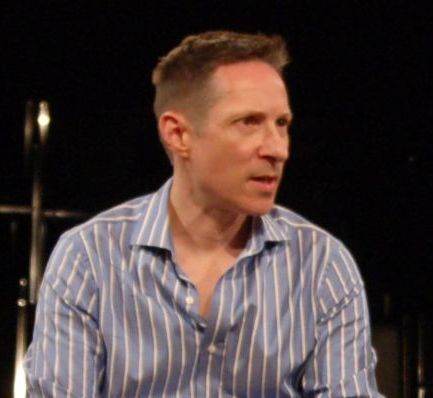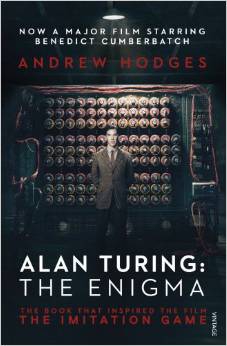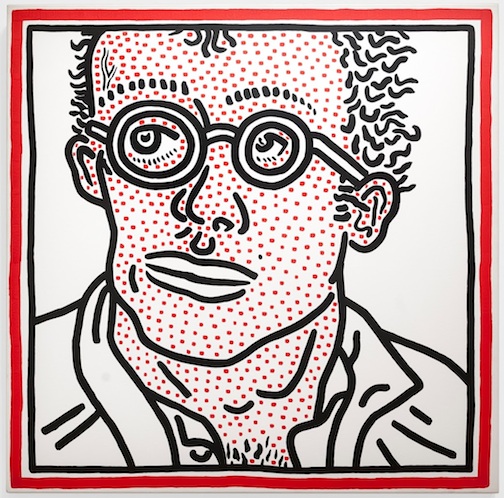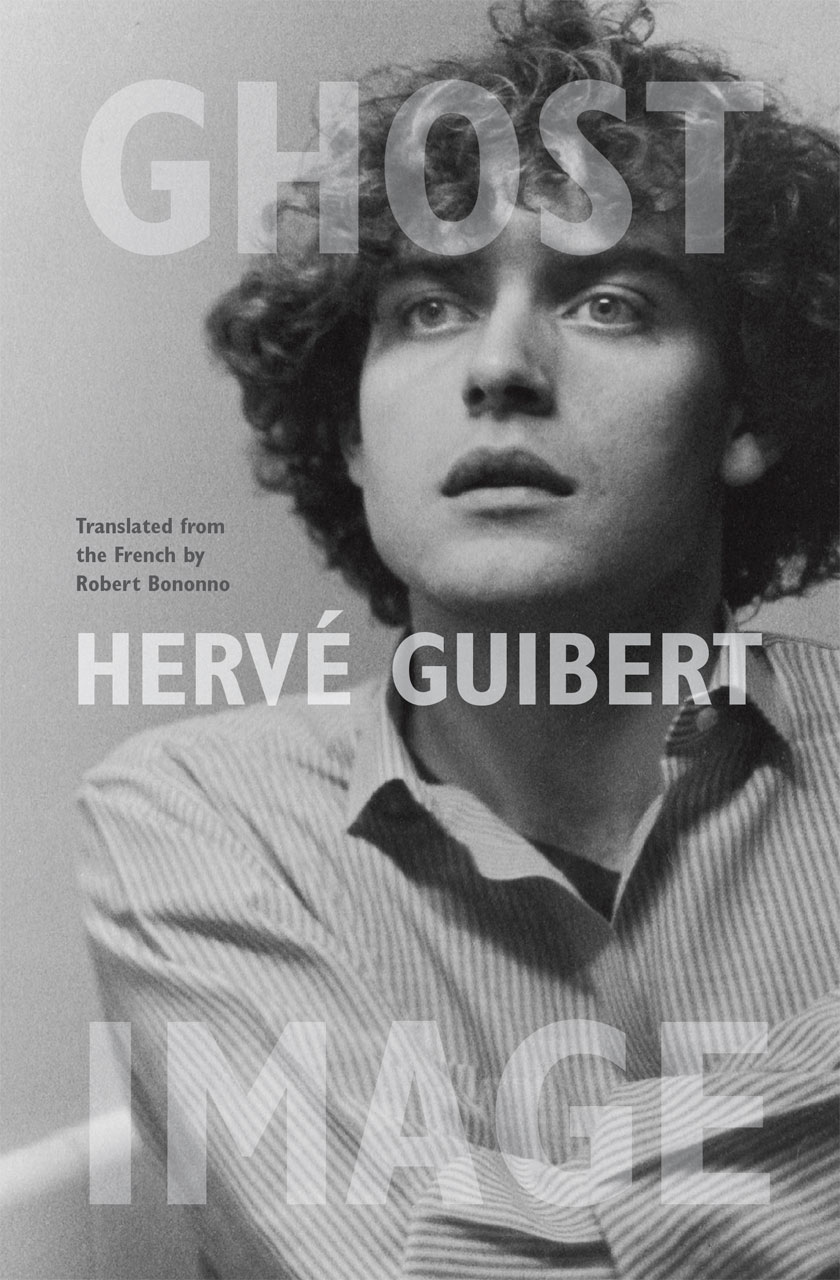JON MARANS’ new play, The Temperamentals, is about Harry Hay, Rudi Gernreich, and the beginning of the gay rights movement with The Mattachine Society. Today we can talk about “the gay community,” but Jon’s play is about a time before that—our early history—and about the courageous and strong-willed people who stuck their necks out so that we could find each other.
Jon Marans grew up in the suburbs of Washington, DC. His father was and is an organic chemist, his mother worked for a book chain as a critic. Every two weeks, when her books arrived in the mail, Jon would grab some for himself and take them upstairs to his bedroom to read. He knew then that he wanted to be a writer, but it wasn’t until after he graduated from Duke University, in 1979, with a degree in math and music, that he moved to New York to become playwright.
The Temperamentals first ran Off Off Broadway in the spring and summer of 2009. It reopened again in March 2010 Off Broadway at New World Stages, directed by Jonathan Silverstein. The play closed on May 23rd, but not before it garnered Michael Urie (as Rudi Gernreich) a Lucille Lortel Award for Outstanding Lead Actor and a Drama Desk Award to the five-man cast for Outstanding Ensemble Performance.
Jon Marans’ other plays include Old Wicked Songs (a Pulitzer Prize finalist for drama in 1996), A Strange and Separate People, Jumping for Joy, the book for the musical Legacy of the Dragonslayers (based on Studs Terkel’s Coming of Age), Child Child, and Opportunity Knocks. He has also worked in television (as staff writer and lyricist for the 1991 New Carol Burnett Show) and film. Most recently, he has been commissioned by the Ensemble Studio Theatre/Alfred P. Sloane Foundation to write a new play with a math and science focus.
This face-to-face interview was conducted in New York’s Greenwich Village late last year.
Robin Goldfin: How did you first learn about Harry Hay, Rudi Gernreich, and the other pioneers of the gay rights movement?
Jon Marans: The whole thing started out when the San Jose Rep hired me to rewrite the book to a musical called Legacy of the Dragonslayers. It’s based on Studs Terkel’s book of that name, which is interviews with political activists and anarchists who are all over the age of seventy and still alive, angry, and fighting the good fight. One chapter was called “The Others”—referring to homosexuals. There was this fascinating interview with Harry Hay at the age of 81.
RG: So you wrote that into the show?
JM: I put about thirty of Terkel’s interviews into the musical—sometimes as monologues, sometimes in split-screen, as contrasting stories. At one point I had five actors onstage, each playing a different political activist, accompanied by a bass and drums. Harry Hay was also in it—a recurring character. And every time he came back onstage, he stole the show. Because he saw the world differently than anybody else did. And because he 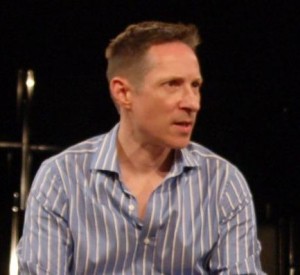 was joyfully unapologetic about who he was—even back in the conservative 1950’s—I thought, “I’ve gotta find out more about this guy.” So I started to read up.
was joyfully unapologetic about who he was—even back in the conservative 1950’s—I thought, “I’ve gotta find out more about this guy.” So I started to read up.
RG: You knew you wanted to write about him?
JM: Not about the older Harry Hay. I wanted to write about him when he was young—just starting out, developing his ideas and falling in love. I read a lot, including Stuart Timmons’ book, The Trouble with Harry Hay, and in it he mentions that basically nobody wanted to work with Harry Hay in 1948. He was an annoying, obnoxious, pushy son of a bitch. And aggressive: at six-foot-three, he scared the shit out of people. It was only when he met Rudi Gernreich, who was charming, socially connected, delightful in any situation—that anyone would listen to Harry Hay. They made a perfect team. If those two men hadn’t fallen in love, there would never have been a Mattachine Society. It all began because of this love story. That’s what I found captivating—and then I knew I had found the hook to the show.
RG: How much did you know about Rudi?
JM: Not a lot. I read as much as I could and called Stuart, and he gave me more. Rudi’s background is fascinating: he grew up in Vienna in an upper-middle-class Jewish family; but once the Germans came in, his family’s entire life changed. As a teenager, Rudi saw the Nazis force his grandparents to sweep the streets of Vienna. Yet somehow, he, his mother, and his aunt miraculously managed to get out of Austria—after the Anschluss. However, the rest of his family all eventually died in Auschwitz. So this was a young man who understood the horrific things that can happen just because of who you are.
RG: How much liberty did you take with history?
JM: Well, it is a piece of fiction—historical fiction. But the basic facts are true. Harry and Rudi fell in love and formed the organization. Also, Dale was the key—and of course he won the trial. [Dale Jennings was framed in a men’s room by an undercover cop, decided to fight it in court—and won]. And ultimately the original members of the Mattachine were forced to resign. All of that is totally true.
RG: Also, Harry going up before the House Un-American Activities Committee (HUAC).
JM: Which is both fascinating and disappointing. All those great liberal lawyers were jumping on the bandwagon to represent Communists back then—it was a badge of honor. But nobody wanted to represent Harry. It was one thing to represent a Communist, but to represent a homosexual in the 1950’s—to many that was unthinkable.
RG: How do you make the connection between the politics of the 50’s and today?
JM: During the previous run of The Temperamentals, we began “Militant Mondays.” Every Monday we’d get a political person to speak after the show—to do a talkback. The first of the Militant Mondays was Larry Kramer, which was perfect because Harry Hay was basically the Larry Kramer of his time. And Larry asked, “Can I bring my friend Paul Rudnick?” Actually, there were four of us: there was Bill C. Davis—he wrote “Mass Appeal,” Paul Rudnick, Larry Kramer, and myself. And it was wonderful because Larry Kramer got up and started berating the audience for not being more active—he was gorgeous—and then Paul Rudnick would be very funny—political, and funny.
Larry brought up the point that the reason Harry Hay formed the Mattachine Society was because he said that gay people have got to stand up as a minority. The problem is that most—especially middle and upper middle class gay people don’t want to be thought of as a minority. Even today—many want to be just thought of as like everybody else—thinking they can pass.
RG: And Harry Hay was never interested in passing.
JM: Just the opposite. In the play, during the trial, Harry puts on a shawl—which he wore quite a bit later in life. Although the shawl at that point in the play was more of a fabrication. I doubt he actually wore it at the trial.
RG: I’m sitting in the audience thinking, “Take it off, please take it off!”
JM: That’s the beauty of it. Chuck says the line, “Why are you wearing that shawl?” and Harry says “I intend never to be mistaken for a heterosexual again.” And some nights three or four people in the audience would burst into applause.
RG: There’s also a change in Harry from the beginning of the play to the end.
JM: I have tried to show who Harry was—who he evolved into. In the beginning, at the early meetings, he was insistent that everyone wear a jacket and tie, “to look like everybody else.” Growing up, he was taught to fit into society; he came from a privileged background. But his mother obviously had some rebel in her as well, since she was willing to be treasurer of the Mattachine Society, and eventually did earn herself an FBI file.
RG: I want to ask you about music in the play, because in all of your plays music plays a role.
JM: Harry Hay was a communist music teacher and saw how music could be a weapon in the “class struggle.” He taught how it was often used as a secret code. For instance, some Negro spirituals such as “Swing Low, Sweet Chariot” had code words in them letting people know that this was the night they were heading up north via the Underground Railroad. I try to use this “music as code” throughout—especially when Harry and Rudi sing together in front of people. Music also allowed me to bring out the emotional side of Harry Hay.
RG: What about the audience for The Temperamentals—what kinds of people does the play appeal to?
JM: The last production started out primarily with a gay audience and then slowly shifted until—for instance—the matinées were almost completely straight. And it seemed that the reaction in both kinds of houses was similar, except for some very specific laughs that a gay audience, especially of a certain age, would get more readily than others.
RG: You told me before that this play was a labor of love. I think that describes both your work on the play and what these men in the 1950’s did.
JM: They were incredibly brave in a way that I never was. I don’t think I could have done what they did. I wish I had been more political, done more with act up, for example. But that just doesn’t seem to be in my personality. What I can do, though, is write about it.
Robin Goldfin, a teacher, playwright, and performer, teaches writing in NYU’s
Liberal Studies Program. His short play “The Acoustics” was recently part of Artistic New Directions’ “Eclectic Evening of Shorts III.”


